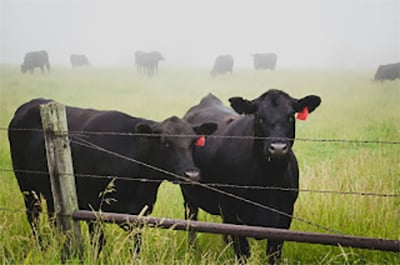With each passing day of the session, you can feel legislative efforts intensifying as lawmakers seek to enact bills that are important to them and, most importantly, beneficial to their constituents. Budget review continues in the state Senate, and in week eight of the session, we introduced and passed the following bills:
Senate Bill 48 would recoup taxpayer money designed to help Braidy Industries, now known as Unity Aluminum, establish a $1.3 billion, 2.5 million-square-foot aluminum mill in Greenup County near Ashland.
Senate Bill 194 is a tax rebate plan in response to inflation hitting a 40-year high. Under the Senate’s plan, introduced during a special Appropriations and Revenue Committee meeting yesterday, each single working Kentucky taxpayer will receive up to $500, each household up to $1,000. This tax rebate is possible because of the conservative budget of the commonwealth; unexpected and exceptional revenue growth is expected to yield over $1.94 billion in excess funds that rightly belong to Kentucky taxpayers. This plan will keep more money in taxpayers’ pockets and empower them with the tools to make appropriate choices for their families.

Senate Joint Resolution 150 aims to end the COVID-19 State of Emergency declared by Governor Andy Beshear on March 6. This week, it was voted favorably out of committee and off the Senate floor.
Before the legislature’s involvement in COVID-related decision-making in 2020, the governor imposed widespread damaging mandates across the state. Elective medical procedures were shut down, statewide mask mandates were imposed, in-person student learning was halted, churches were targeted, businesses were forced to close their doors and interstate travel was restricted. Since the onset of the pandemic, overdose deaths, suicides, and child abuse rates have skyrocketed. If lawmakers do not repeal this current State of Emergency by March 7, it will expire on April 15, and the governor will have the ability to file another extension. The General Assembly would then be unable to curtail the extreme actions our governor has proved he is inclined toward, stoking additional fear in the constituency and further damaging our economy.
SJR 150 is a thoughtful approach to ending the Kentucky state of emergency. It gives the executive branch time to determine whether to file administrative regulations based upon existing statutory authority. This encourages the governor to engage the legislature instead of unilaterally dictating policy. Suppose the governor chooses not to include the General Assembly in legislating. In that case, it will be apparent to the commonwealth’s residents he is playing politics with their lives and livelihoods. With COVID-19 here to stay, it is finally time for Kentucky to return to normal and declare COVID an endemic, no longer a pandemic.
Senate Bill 138, also known as the Teaching American Principles Act, extends existing elementary social studies standards to middle and high schools. It encourages a study of United States historical documents and uniting students around our nation’s history, not dividing them.
SB 138 preserves classroom discussion of controversial aspects of history and the historical oppression of a particular group of people. It also maintains a teacher’s ability to teach current events on controversial subjects and help students learn how to think rather than what to think. It supports civic learning in settings that students may encounter in their lives, such as the legislative process. The bill also allows teachers to choose whether to engage in diversity-based training programs.
It does not circumvent the established standards adoption process or diminish employee professional growth and development, nor does it inhibit frank conversations about past injustices done. It prohibits homework assignments, projects, or extra credit on political, social-policy, or lobbying activities to which a student or their family objects.
SB 138 was drafted in response to the growing concerns from parents, students and teachers alike that our nation’s history is being rewritten in the academic setting. This has been an increasing trend nationwide, causing division and angst amongst parents and school boards. SB 138 sets out to unify these groups in the commonwealth by the inclusion of our nation’s primary source historical documents that embrace the good, the bad and the ugly of the authentic American story.
Senate Bill 124 allows commercial driver’s license (CDL) holders to renew expired licenses less than five years old without taking both the knowledge and skills tests. This only applies to CDL license holders whose license was not suspended, revoked or disqualified. Drivers must submit medical clearance, self-certification, a criminal background check, a review of driving history and a vision test. Former CDL license holders whose license was suspended because of a failure to submit medical evaluation may renew their licenses. Finally, it allows drivers to keep their hazardous materials endorsements if they retake the required examinations.
Senate Bill 133 reorganizes offices within the Cabinet for Health and Family Services by placing the Office of Data Analytics under the Office of the Secretary within CHFS. The bill also expands the Office of Inspector General’s (OIG) responsibility by establishing the Kentucky Health Information Exchange and oversight thereof and moving the Department of Telehealth Services to the OIG. Lastly, SB 133 moves the Health Benefits Exchange to the Department of Medicaid Services.
Senate Bill 148 redefines “controlled environment agriculture facility” to allow the Kentucky Department of Housing, Buildings and Construction to make exemptions to benefit Kentucky’s agri-businesses by reforming building codes. It defines them as a facility that uses a technologically advanced form of hydroponic or soilless-based production, which includes a combination of engineering, plant science, and computer-managed greenhouse control technologies in growing spaces. All connected sorting, packing and storage areas allow complete and stable control of the plant environment, including temperature, light, and carbon dioxide. It also includes the immediate sorting, packaging, and shipping of fresh produce and shall not be used for retail sales or allow open access to the public.
Senate Bill 152 provides that a local government is not required to comply with notice or hearing requirements and wait times before awarding a waste management franchise for the first time. This would only apply when the local government has been the sole provider of the same waste management services in the area and wishes to add a franchise. This is beneficial because the bill creates cost savings for cities, having a positive fiscal impact.
Senate Bill 91 allows licensed dealers to conduct online sales and delivery of a motor vehicle to customer’s residences or other suitable locations if requested by the customer. It modernizes the purchase and sale of automobiles, enabling more convenience in the marketplace for both consumer and merchant.
Senate Bill 80 requires when a post-mortem examination is needed, the exam shall include genetic testing; if the genetic test results determine the cause of death, the notice of the death must be reported to the state registrar of vital statistics, who shall record the cause of death on the death certificate. Information about the deceased person or the genetic test results cannot be released without written, signed and acknowledged consent of a spouse, or, if no spouse, the next of kin, or, if none, whoever assumes responsibility to dispose of the body.
If you have any questions or comments about these issues or any other public policy issue, I can be contacted by phone in Frankfort at 502-564-8100 or at home at 859-384-7506. You can also call the Legislative Message Line at 1-800-372-7181 to share your opinion on bills being considered by the legislature. Please direct all responses to me through my page on the Legislative Research Commission website www.legislature.ky.gov, where you can also access the bills outlined in this legislative update.
Senator John Schickel (R-Union) represents the 11th District in Northern and Central Boone County. Sen. Schickel is chair of the Senate Licensing and Occupations Committee. He also serves as a member of the Senate Standing Committees on Judiciary, Banking and Insurance, Natural Resources and Energy, and is a liaison member of the Budget Review Subcommittee on Justice and Judiciary.

















